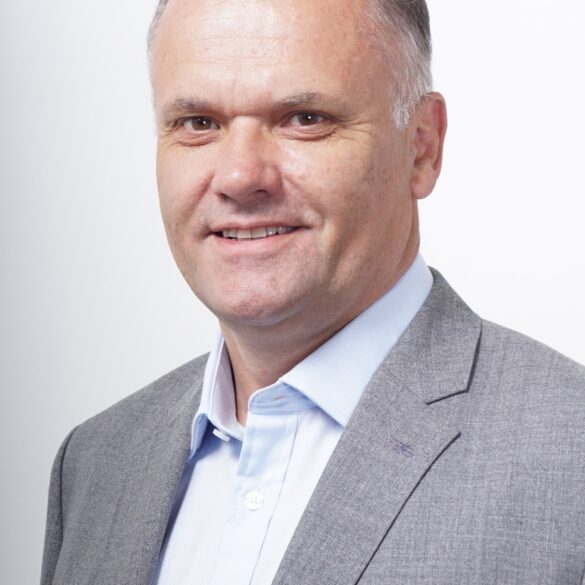Digital Justice & Policing 2022
Accelerating the modernisation of justice services in scotland
13 October 2022 - UNIVERSITY OF STRATHCLYDE, GLASGOW
With case backlogs still impacting the delivery of services, a packed full-day programme will feature the latest technologies that are helping to address capacity, improve user experience and build confidence in platforms that have been spun up in response to Covid.
As the pressures of the pandemic continue to ease, we analyse how centuries old systems have been irreversibly changed for the better and how the next wave of innovation will help join up the Courts, Government, Police and Victims' groups. Hear how the national 'recover, renew and transform' approach is being supported by an ongoing revolution in frontline policing - from digital forensics, evidence sharing and drones to body worn video.
As well as assessing the maturity and implementation of digital programmes across the justice sector, we will review the cultural, leadership and skills challenges facing individuals and organisations as they embed complex service adaptations designed to improve the experience for ordinary people interacting with justice services in Scotland.
Understand digital transformation and data sharing projects such as the intra-agency Digital Evidence Sharing Capability (DESC).
Hear how investment in technology is helping police to modernise frontline service delivery, using data-driven innovation, smart devices and cloud-based platforms.
Join the debate on advancing control room capabilities, including Artificial Intelligence and facial recognition alongside a range of community safety approaches.
2022 Speakers
Mike Riordan
Account Executive, UK, Axon

Axon and AI – Assisting Policing & Justice Processes: Delivering results, reducing burnout, improving wellbeing
Mike is a Public Safety specialist who has worked for Axon since 2023, supporting forces to adopt new technologies and ways of working, to include evidence management systems and the use of AI services such as transcription, translation and automation of tasks to help officers and staff alike become more effective.
He has worked in the technology industry for over 20 years, with recent roles including UK Policing Lead for Microsoft, and leading the Justice & Public Safety Team at Amazon Web Services prior to his role in Axon.
Professor Liz Aston
Director, Scottish Institute for Policing Research

Dr Liz Aston is the Director of the Scottish Institute for Policing Research (SIPR) and an Associate Professor of Criminology at Edinburgh Napier University. In 2020 she was appointed by the Cabinet Secretary for Justice to establish and Chair the Independent Advisory Group on Emerging Technologies in Policing. She is the co-editor of Palgrave’s Critical Policing Studies Series, a member of the International Advisory Board for the N8 Policing Research Partnership and sits on various Police Scotland advisory/reference groups.
Liz has a strong record of collaborative research on policing both in Scotland and in Europe, and is experienced in knowledge exchange and building strong research-practitioner relationships. Her research expertise centres on local policing, including the intersect between technology and policing. In 2021 Liz was awarded an ESRC Open Call Grant as PI for a three-year project, INTERACT (Investigating New Types of Engagement, Response and Contact Technologies in Policing) and she is a Co-I on the EPSRC funded 3PO project ‘Protecting Public Facing Professionals Online’ project. Prior to her SIPR role she was Head of Social Sciences at Edinburgh Napier University.
Laura Paton
HM Chief Inspector of Prosecution, HM Inspectorate of Prosecution in Scotland

Laura Paton has a background in human rights law with a particular focus on the rights of those involved in the criminal justice system and the rights of children and young people. Laura was appointed HM Chief Inspector of Prosecution in Scotland in 2019. Her role is to independently assess the operation of the Crown Office and Procurator Fiscal Service. Recent inspections have covered the investigation and prosecution of sexual crime, the handling of criminal allegations against the police, and the use and impact of emergency criminal justice provisions introduced in response to Covid-19.
Before being appointed HM Chief Inspector of Prosecution, Laura was a Lead Inspector with HM Inspectorate of Constabulary in Scotland where she inspected the state, efficiency and effectiveness of policing from 2013 to 2019. Laura led inspections of a wide range of policing activity including local policing, custody, crime recording, call handling, firearms licensing and railway policing. Previously, Laura worked with HM Inspectorate of Prisons (HMIP) in England and Wales providing policy and human rights advice on the independent inspection of prisons and other forms of custody. This included developing a framework for the inspection of military detention facilities in Afghanistan. From 2009 to 2013, Laura was also the first coordinator of the UK’s National Preventive Mechanism (NPM), a group of organisations tasked under international law with monitoring all places of detention. Laura regularly advised governments and NPMs around the world on the human rights-based inspection of detention. Prior to joining HMIP, she worked for the Commissioner for Children and Young People in Scotland, where she coordinated the first shadow report submitted by the four UK Children’s Commissioners to the UN Committee on the Rights of the Child, and developed a model for children’s rights impact assessments. Laura has also worked in the voluntary sector for Children 1st and for the Children’s Legal Centre, where she was editor of a journal of law and policy affecting children and their families.
Laura currently serves as a trustee and vice chair of Together, the Scottish Alliance for Children’s Rights. She has a First Class Honours Degree in Scots Law from the University of Glasgow and a LLM in Human Rights Law from Glasgow Graduate School of Law.
DCI Alisdair Hall
Specialist Crime Division – Intelligence Support, Police Scotland

Ally has been a Police Officer for over 29 years, during this time covering a variety of front line and covert policing roles. Predominantly an intelligence background, Ally has worked in Counter Terrorism, been seconded to the Metropolitan Police and during his service has undertaken responsibilities in several high profile events including the London Olympics, Glasgow Commonwealth Games, COP26 and most recently the death of HRH the Queen.
Ally’s current position is within the National Intelligence Bureau at the Scottish Crime Campus, Gartcosh.
Chief Superintendent Matt Richards
Operational Change and Resilience, Police Scotland

Chief Superintendent Matt Richards has management responsibility for Police Scotland’s Digitally Enabled Policing Programme, a key component of the ten-year strategy for policing ‘Serving a Changing Scotland’.
Between 2017 and 2019 he was Divisional Commander for Specialist Services, giving him national responsibility for Armed Policing, Specialist Operations, dog and mounted branches, Air Support Unit, Dive and Marine Unit, Mountain Rescue, the National Hostage and Crisis Negotiator Unit and Chemical Biological Radiological and Nuclear (CBRN) teams. Matt has substantial experience commanding major events including the Hogmanay Street Party, the Edinburgh Festival, Royal residences and the visit of the President of the United States. He has also been frequently deployed as a Public Order Commander and Strategic Firearms Commander across the country. While in charge of Specialist Services he led on the extension of Taser, the RPAS (drones) Programme and changes to the Armed Policing Deployment Model.
In 2016 he was Operations Superintendent for C3 Division (force control rooms) as they were re-modelled from 6 sites to 3, having previously been the Partnership and then Operations Superintendent in Edinburgh before, during and after the inception of Police Scotland.
Chief Superintendent Richards joined the legacy Lothian & Borders Police in 1994 and was initially based in the Wester Hailes area. He has held various uniformed and detective roles up to superintendent across the service.
In 2021 he was Strategic Public Order Commander during the successful delivery of the Conference of Parties (COP26) which was held in Glasgow.
Colin Kirwan
Intelligence Consultant, Capita

Colin started his career in the military, serving seven years in the Intelligence Corps – completing two operation tours of Afghanistan as well as other deployments across the world. Following this, he worked as an intelligence contractor in Iraq for a year and then as an Intelligence Manager in a prison for two years, before moving to the world of open source with COSAIN. Colin has been part of the Capita team for five years, providing 24/7 support to its users. This support is not just technical in nature, but using his engrained background in analysis, he is able to support users with live incident monitoring and reducing threat, risk and harm.
Keith Dargie
Head of Business Services and Chief Information and Digital Officer, COPFS

AI in Justice: Transforming Casework and Services
Leveraging the power of AI technologies to transform public services. Keith has extensive experience in senior business and digital executive leadership roles held in government and public sector organisations and in transforming and improving profile public facing services. Keith is responsible for COPFS’ corporate and business service functions, which includes digital and information services. Current digital transformation priorities include maximising the use of data and digital technology to transform the delivery of citizen services and to improve the way the organisation works. Keith completed an MBA (with Project Management) in 2015.
Twitter:@COPFS
Nigel Ironside
Head of Digital Services, Scottish Prison Service

Nigel is Head of Digital Services at Scottish Prison Service and has held past roles as Head of Health and Justice; Governor, HMP Glenochil & Deputy Director Prisons.
Nigel’s objectives include the implementing digital transformation across the SPS to upskill frontline staff and include those in custody to embrace digital inclusion. Developing a new case management platform to support the custodial journey & Digital Ethics in Justice.
Interests outside of work include Cycling, Karate (2nd Dan Black Belt Shotokan), Rugby & Japanese Cooking.
Dr Brian Plastow
Scottish Biometrics Commissioner, Scottish Biometrics Commissioner

The Scottish Biometrics Commissioner is Dr Brian Plastow, who was appointed by Her Majesty the Queen on 12 April 2021 on the nomination of the Scottish Parliament. He is a former police Chief Superintendent and Lead Inspector with Her Majesty’s Inspectorate of Constabulary in Scotland. Brian has more than 4 decades of policing experience in Scotland and has significant knowledge of, and practical experience in, the use of biometric data and technologies for criminal justice and policing purposes.
Ian Williams
Senior Client Director, Motorola Solutions

Ian joined the Metropolitan Police in 1989 where he served in West and South London for the first 15 years of his service in frontline operational roles. The second half of his career was spent in West Yorkshire Police, specialising in neighbourhood policing, partnerships, public order and firearms command roles. The last four years of his service was spent leading the delivery of mobile policing. Ian now works for Motorola Solutions as a senior consultant in public safety software solutions with a particular focus on situational awareness and mobility.
John Cheal
Solutions & Propositions Director, Justice & Policing, Capita

John is digital and innovation lead at Capita across Justice and Policing. In this role he researches and develops service and solution propositions to solve sector challenges, improve citizen experience across public services and enable the digital justice agenda. John’s background is in the design and delivery of technology enabled solutions and services for public and private sector enterprise clients. He has been a champion of workflow automation and technology driven citizen experience for more than a decade. John is also a member of Tech UK’s Justice and Emergency Services Management Committee.
Prof. Fraser Sampson
Biometrics and Surveillance Camera Commissioner, Home Office

Fraser Sampson is an Honorary Professor and member of the Advisory Board at the Centre for Excellence in Terrorism, Resilience, Intelligence & Organised Crime Research at Sheffield Hallam University where he obtained a PhD in digital accountability in law enforcement and has worked on a number of international research projects involving technology within policing, including the development of principles for the accountable use of AI. Having over 40 years’ experience working in the criminal justice sector, he served as a police officer in the West Yorkshire Police and British Transport Police before becoming a solicitor specialising in policing law, conduct and governance. He has written and edited a number of leading police law texts including the Blackstone’s Police Manuals published by Oxford University Press. As national chair of the Association of Police and Crime Chief Executives, he proposed and subsequently drafted the statutory oath of office for police and crime commissioners and was appointed CEO & Solicitor to the Police and Crime Commissioner for West Yorkshire in 2012 where he was instrumental in establishing the National Police Air Service, later being seconded as CEO to the Police, Fire & Crime Commissioner in North Yorkshire. He is a graduate of the Top Management Programme at the Civil Service College, a Senior Fellow of the Weinstein International Foundation for dispute resolution in the United States and a CEDR qualified mediator.
Prof. Nancy Loucks
Chief Executive Officer, Families Outside

Prof. Nancy Loucks OBE is the Chief Executive of Families Outside, a Scottish voluntary organisation that works on behalf of families affected by imprisonment. Prior to this she worked as an Independent Criminologist, receiving her MPhil and PhD from the Institute of Criminology at the University of Cambridge, and in 2012 was appointed as Visiting Professor at the University of Strathclyde’s Centre for Law, Crime and Justice. Nancy was awarded an OBE in the 2016 New Year’s Honours List for services to Education and Human Rights.
She co-chaired the Justice & Care Workstream for the Independent Care Review and the Independent Review of the Response to Deaths in Prison in Scotland; chairs the Board of the International Coalition for Children of Incarcerated Parents (INCCIP); and is a member of the Global Prisoners’ Families Research Group at the Centre for Criminology, Faculty of Law, University of Oxford.

Irakli BeridzeHead of the Centre for Artificial Intelligence and Robotics
United Nations Interregional Crime and Justice Research Institute (UNICRI)
Irakli Beridze
Head of the Centre for Artificial Intelligence and Robotics, United Nations Interregional Crime and Justice Research Institute (UNICRI)

Irakli Beridze is the Head of the Centre for Artificial Intelligence and Robotics at UNICRI, United Nations. More than 20 years of experience in leading multilateral negotiations, developing stakeholder engagement programmes with governments, UN agencies, international organisations, private industry and corporations, think tanks, civil society, foundations, academia, and other partners on an international level. Mr Beridze is advising governments and international organizations on numerous issues related to international security, scientific and technological developments, emerging technologies, innovation and disruptive potential of new technologies, particularly on the issue on crime prevention, criminal justice and security. He is supporting governments worldwide on the strategies, action plans, roadmaps and policy papers on AI. Since 2014, Initiated and managed one of the first United Nations Programmes on AI. Initiating and organizing number of high-level events at the United Nations General Assembly, and other international organizations. Finding synergies with traditional threats and risks as well as identifying solutions that AI can contribute to the achievement of the United Nations Sustainable Development Goals. He is a member of various international task forces, including the World Economic Forum’s Global Artificial Intelligence Council, the UN High-level panel for digital cooperation, the High-Level Expert Group on Artificial Intelligence of the European Commission. He is frequently lecturing and speaking on the subjects related to technological development, exponential technologies, artificial intelligence and robotics and international security. He has numerous publications in international journals and magazines and frequently quoted in media on the issues related to AI. Irakli Beridze is an International Gender Champion supporting the IGC Panel Parity Pledge. He is also recipient of recognition on the awarding of the Nobel Peace Prize to the OPCW in 2013.
Kate Wallace
Chief Executive, Victim Support Scotland

With over 20 years’ experience as a senior leader in social justice in Scotland, Kate is a well-known and highly-respected figure dedicated to improving the criminal justice system for victims and advocating for their rights. Her work is informed by victims’ own experiences, and a deep desire for this to drive legislative and institutional progress.
Kate has a background in transformational change within complex systems and organisations, and has led a number of organisations in a variety of sectors. Originally a youth worker in the 1990s working with young people in the Glasgow and Renfrewshire areas, Kate widened her role to lead policy, influencing, and analytics functions before moving into transforming systems and organisational change. For many years she was a senior leader within Barnardo’s, a leading children’s charity in the UK, where she held many roles including UK Programme Director.
From 2014-2017 Kate led Visualise Scotland, a charity providing supported accommodation and social care for people with disabilities and complex needs before moving to Victim Support Scotland.
Whist in Victim Support Scotland Kate has been a prominent, persuasive and effective leader regarding many significant national initiatives and improvements. Kate is also currently a member of the Criminal Court Rules Council.
Professor William Webster
Professor of Public Policy and Management, University of Stirling

William Webster is Professor of Public Policy and Management at the Stirling Management School, University of Stirling. He is a Director of CRISP (the Centre for Research into Information Surveillance and Privacy), a research centre dedicated to understanding the social impacts and consequences of technologically mediated surveillance. Professor Webster has research expertise in the policy processes, regulation and governance of surveillance cameras, privacy and ethics, as well as public policy relating to data protection and eGovernment. He is Editor-in-Chief of the journal Information Polity, co-chair of the Scottish Privacy Forum and the EGPA (European Group of Public Administration) Permanent Study Group on eGovernment.
Martin Taylor
Deputy Chief Executive Officer, Content Guru

Martin Taylor is Deputy CEO of cloud communications technology leader Content Guru. Since co-founding the company, whose storm® cloud platform supports hundreds of the world’s largest governmental and private sector organisations, Martin has remained at the forefront of innovation in communications and customer experience technology. He heads Content Guru’s public sector and healthcare practice, which operates the omni-channel communications that underpin household-name services such as DWP Universal Credit, NHS111 and Test & Trace.
Martin is a regular guest lecturer at his alma mater, King’s College London, where he specialises in strategy and entrepreneurship.
David Tonks
Digital Transformation Consultant (Justice & Policing), Capita

Dave works with Capita as a Digital Transformation Consultant specialising in the Justice and Policing sector. He has extensive experience of operational policing, organisational remodelling and digital transformation.
Prior to joining Capita Dave served for 29 years in a wide range policing roles concluding his policing career as the operational lead for Police Scotland’s Digitally Enabled Policing Team with responsibility for designing and delivering their new national information management platform (COS).
During his career he led the introduction of the Airwave Communications System into Tayside Police and its deployment in support of the 2005 G8 Conference. He undertook a leadership role in the strategic redesign of Police Scotland’s Contact, Command and Control (C3) capabilities, including the development of an associated business case for the modernisation of Police Scotland Control Room/ Service Centre technologies.
Declan Doyle
Head of Ethical Hacking & Client Services, Cyber and Fraud Centre - Scotland

Declan is a tireless advocate of promoting STEM skills to the younger generation and is an active mentor and coach to the next generation of cyber security professionals in Scotland. While we have been working with Declan since Jan 2018 at the Cyber and Fraud Centre – Scotland, he has designed, curated, delivered, hosted and organised a huge number of cyber education, cyber exercising, and cyber security related events.
One of Declan’s most celebrated strengths is that whether working with internal or external group of people, he looks to find the best outcome for all involved and truly exemplifies the core values of our organisation, where we strongly believe in having the people at the heart of it all.
Declan has and continues to take an active role in the success of all of the Ethical Hacking students from Abertay University working with the Cyber and Fraud Centre – Scotland. As Head of Ethical Hacking & Professional Services, his role involves shortlisting, interviewing, hiring and subsequently supervising, mentoring and coaching Cyber and Fraud Centre – Scotland’s Ethical Hackers for all Cyber Education and Cyber Exercising activities and projects.
Ian Holmes
UK Head of Public Safety, Hexagon

With over 30 years of Engineering & IT industry experience, Ian Holmes works in partnership with public safety organisations to assist them in understanding the benefits of Hexagon’s capabilities for incident management and situational awareness and the positive transformational potential of these digital technologies to address the increasingly diverse and complex challenges their organisations face. Collaborating to enable them to navigate the adoption and implementation of these critical digital technologies and deliver a more sophisticated response to evolving demands both now and in the future.
Barry Redmond
Technical Solutions Architect, Cisco

Barry is a Technical Solutions Architect for Cisco focusing in the area of Collaboration & Hybrid Work. His role focuses on assisting customers drive value from their technology investments in their digital transformation programs. He specializes in building vertical solutions and tailoring technology to meet the needs and demands across all government verticals including Justice & Healthcare.
13 October 2022 | Session One: Justice Transformation
Refreshments & networking
Welcome and Chair’s opening remarks
Kim McAllister
BBC Presenter & Communications Consultant,

Transforming services for victims, witnesses and users of the Scottish justice system
Axon
Fiona Cameron (Chair), Justice Transformation Consultant,
Justice Transformation Consultant, Axon

Harnessing the power of technology to drive operational efficiencies and better outcomes in policing
Police Scotland
Chief Superintendent Matt Richards
Operational Change and Resilience, Police Scotland

Between 2017 and 2019 he was Divisional Commander for Specialist Services, giving him national responsibility for Armed Policing, Specialist Operations, dog and mounted branches, Air Support Unit, Dive and Marine Unit, Mountain Rescue, the National Hostage and Crisis Negotiator Unit and Chemical Biological Radiological and Nuclear (CBRN) teams. Matt has substantial experience commanding major events including the Hogmanay Street Party, the Edinburgh Festival, Royal residences and the visit of the President of the United States. He has also been frequently deployed as a Public Order Commander and Strategic Firearms Commander across the country. While in charge of Specialist Services he led on the extension of Taser, the RPAS (drones) Programme and changes to the Armed Policing Deployment Model.
In 2016 he was Operations Superintendent for C3 Division (force control rooms) as they were re-modelled from 6 sites to 3, having previously been the Partnership and then Operations Superintendent in Edinburgh before, during and after the inception of Police Scotland.
Chief Superintendent Richards joined the legacy Lothian & Borders Police in 1994 and was initially based in the Wester Hailes area. He has held various uniformed and detective roles up to superintendent across the service. In 2021 he was Strategic Public Order Commander during the successful delivery of the Conference of Parties (COP26) which was held in Glasgow.
Ensuring justice services are inclusive and designed around the needs of victims and witnesses
Victim Support Scotland
Kate Wallace, Chief Executive,
Chief Executive, Victim Support Scotland

AI in law enforcement: Friend or foe?
United Nations Interregional Crime and Justice Research Institute (UNICRI)
Irakli Beridze
Head of the Centre for Artificial Intelligence and Robotics, United Nations Interregional Crime and Justice Research Institute (UNICRI)

Data Fusion – Enhancing Public Safety and Service Delivery
Capita
David Tonks
Digital Transformation Consultant (Justice & Policing), Capita

Expert Panel: Using digital technology to join up and improve the experience of interacting with the justice system
Axon
Fiona Cameron (Chair), Justice Transformation Consultant,
Justice Transformation Consultant, Axon

Victim Support Scotland
Kate Wallace, Chief Executive,
Chief Executive, Victim Support Scotland

Capita
John Cheal
Solutions & Propositions Director, Justice & Policing, Capita

Refreshments & Networking
13 October 2022 | Session Two & Three: Parallel Masterclass Sessions
Capita with Police Scotland – How data helped police COP26
DCI Alisdair Hall explains how Police Scotland harnessed the massive power of open source data to ensure COP26 ran smoothly. Colin Kirwan, Intelligence Consultant at Capita, will then demonstrate how the solution easily analyses a wide range social media platforms and open data environments to provide you with the information that matters most.
Police Scotland
DCI Alisdair Hall
Specialist Crime Division – Intelligence Support, Police Scotland

Capita
Colin Kirwan
Intelligence Consultant, Capita

AI: Friend or Foe to Public Safety
While AI continues to play an ever-increasing role in our daily lives, concerns with the technology still linger in Public Safety, based on confusion over;
· What AI is.
· How it works.
· What it will mean for the people who use it.
Hexagon
Ian Holmes
UK Head of Public Safety, Hexagon

A Digital Welcome for Citizens
Our increasingly digital always-on world is transforming the way governments connect to citizens on a daily basis. Previous ways of working have been redefined. Come join us as we discuss how we can inject citizen interactions in business and justice workflows. We will discuss two customer cases, The Irish Prison Service and Scottish Courts.
Cisco
Barry Redmond
Technical Solutions Architect, Cisco

Prepare your organisation to defend against cyber threats
The micro exercise session combines several fundamental aspects of cyber security with additional, broader cyber security learnings to ensure all organisations, regardless of their sector or level of cyber knowledge, can benefit and learn about:
1. Ensuring password security
2. Identifying and reporting phishing emails
3. Connecting securely during remote work
4. Responding to a ransomware attack
Cyber and Fraud Centre - Scotland
Declan Doyle
Head of Ethical Hacking & Client Services, Cyber and Fraud Centre - Scotland

Lunch & Networking
13 October 2022 | Session Four: Leadership Streams: Policing and Justice Innovation; Technology Transforming Lives
Policing & Justice Innovation: Technology on the frontline for policing, courts and justice services
COPFS
Keith Dargie, Chief Information Digital Officer,
Head of Business Services and Chief Information and Digital Officer, COPFS

Leveraging the power of AI technologies to transform public services. Keith has extensive experience in senior business and digital executive leadership roles held in government and public sector organisations and in transforming and improving profile public facing services. Keith is responsible for COPFS’ corporate and business service functions, which includes digital and information services. Current digital transformation priorities include maximising the use of data and digital technology to transform the delivery of citizen services and to improve the way the organisation works. Keith completed an MBA (with Project Management) in 2015.
Twitter:@COPFS
University of Stirling
Prof William Webster, Prof of Public Policy and Management,
Professor of Public Policy and Management, University of Stirling

Content Guru
Martin Taylor
Deputy Chief Executive Officer, Content Guru

Martin Taylor is Deputy CEO of cloud communications technology leader Content Guru. Since co-founding the company, whose storm® cloud platform supports hundreds of the world’s largest governmental and private sector organisations, Martin has remained at the forefront of innovation in communications and customer experience technology. He heads Content Guru’s public sector and healthcare practice, which operates the omni-channel communications that underpin household-name services such as DWP Universal Credit, NHS111 and Test & Trace.
Martin is a regular guest lecturer at his alma mater, King’s College London, where he specialises in strategy and entrepreneurship.
Technology Transforming Lives: Dialling up digital to boost rehabilitation, reduce reoffending and improve victims' and witnesses' experience of the justice system
Victim Support Scotland
Kate Wallace, Chief Executive,
Chief Executive, Victim Support Scotland

Scottish Prison Service
Nigel Ironside, Head of Digital Services,
Head of Digital Services, Scottish Prison Service

Families Outside
Prof. Nancy Loucks OBE
Chief Executive Officer, Families Outside

HM Inspectorate of Prosecution in Scotland
Laura Paton
HM Chief Inspector of Prosecution, HM Inspectorate of Prosecution in Scotland

Laura Paton has a background in human rights law with a particular focus on the rights of those involved in the criminal justice system and the rights of children and young people. Laura was appointed HM Chief Inspector of Prosecution in Scotland in 2019. Her role is to independently assess the operation of the Crown Office and Procurator Fiscal Service. Recent inspections have covered the investigation and prosecution of sexual crime, the handling of criminal allegations against the police, and the use and impact of emergency criminal justice provisions introduced in response to Covid-19.
Before being appointed HM Chief Inspector of Prosecution, Laura was a Lead Inspector with HM Inspectorate of Constabulary in Scotland where she inspected the state, efficiency and effectiveness of policing from 2013 to 2019. Laura led inspections of a wide range of policing activity including local policing, custody, crime recording, call handling, firearms licensing and railway policing. Previously, Laura worked with HM Inspectorate of Prisons (HMIP) in England and Wales providing policy and human rights advice on the independent inspection of prisons and other forms of custody. This included developing a framework for the inspection of military detention facilities in Afghanistan. From 2009 to 2013, Laura was also the first coordinator of the UK's National Preventive Mechanism (NPM), a group of organisations tasked under international law with monitoring all places of detention. Laura regularly advised governments and NPMs around the world on the human rights-based inspection of detention. Prior to joining HMIP, she worked for the Commissioner for Children and Young People in Scotland, where she coordinated the first shadow report submitted by the four UK Children’s Commissioners to the UN Committee on the Rights of the Child, and developed a model for children’s rights impact assessments. Laura has also worked in the voluntary sector for Children 1st and for the Children’s Legal Centre, where she was editor of a journal of law and policy affecting children and their families.
Laura currently serves as a trustee and vice chair of Together, the Scottish Alliance for Children’s Rights. She has a First Class Honours Degree in Scots Law from the University of Glasgow and a LLM in Human Rights Law from Glasgow Graduate School of Law.
Afternoon refreshments & networking
13 October 2022 | Session Five: The Future of Justice Technology
The Future of Justice Technology
Scottish Biometrics Commissioner
Dr Brian Plastow
Scottish Biometrics Commissioner, Scottish Biometrics Commissioner

Scottish Biometrics Commissioner
Diego Quiroz
Operations Manager, Scottish Biometrics Commissioner

Scottish Institute for Policing Research
Professor Liz Aston
Director, Scottish Institute for Policing Research

Motorola Solutions
Ian Williams
Senior Client Director, Motorola Solutions

Home Office
Prof. Fraser Sampson
Biometrics and Surveillance Camera Commissioner, Home Office

Conference Close
YOU MAY ALSO LIKE…
How Axon’s ecosystem helps West Midlands Police do more with less
Modernising justice: how configurable technology can transform the UK’s case management system
Crashing into a broken system: one man’s mission to digitise justice in Scotland
Register your interest
Don't miss out on Health and Care Transformation 2022.

Copyright © 2021.
Canongate Communications
Limited
42 St Mary’s St, Edinburgh EH1 1SX.
Company Reg: SC296936
VAT 905292530





























